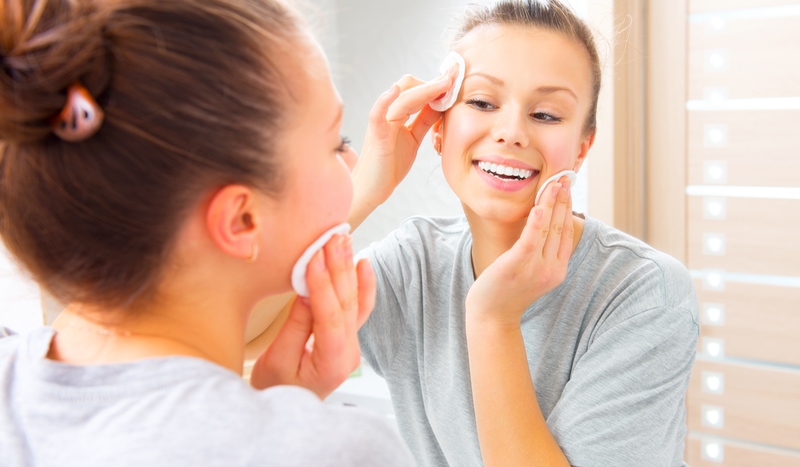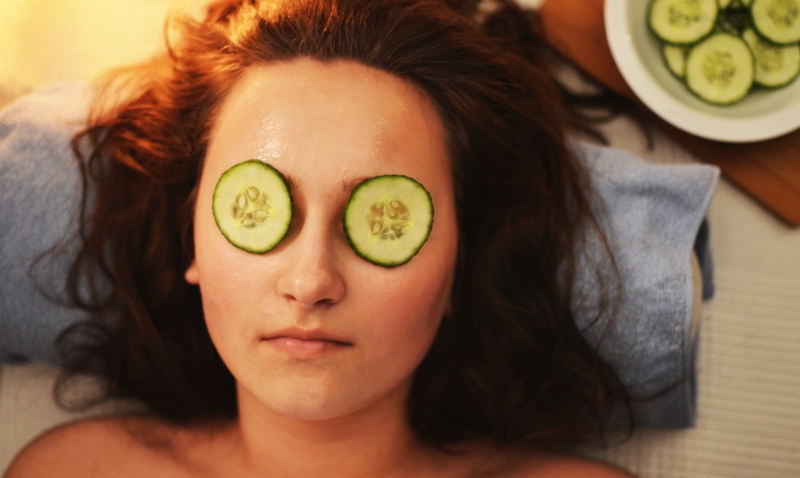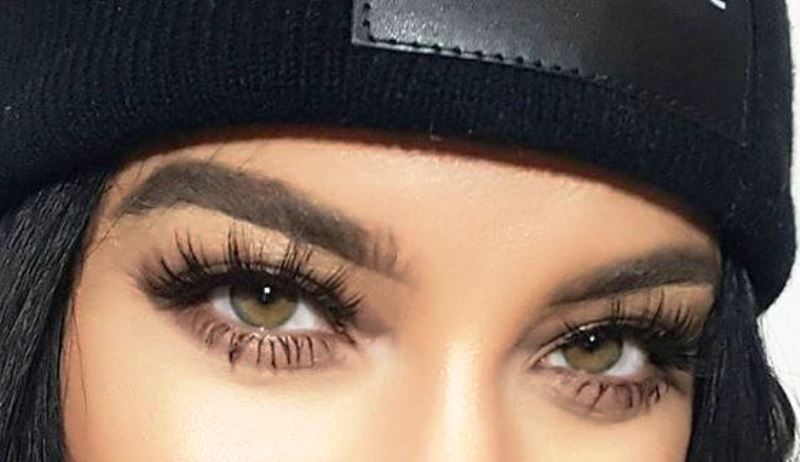Eyes are, undoubtedly, the most beautiful part of the anatomy, right? If it weren’t for them, how would we see the wonders that the world has to offer? I mean, the beautiful sights in exact dimensions of shape; we wouldn’t be able to experience anything the way we do today. Beauty-wise too, eyes are valued as the most appealing feature of our face, no offence to the nose, lips, brows etc.! I cannot help it if eyes get all the attention, guys!
Suggested read: 10 tips for daily skin care routine before and after your workout
Eyes are also referred to as the mirror to one’s soul, since they let out all our emotions, no matter how great a façade we maintain otherwise!
But eyes don’t only reveal our emotions; they also give out the number of years we have lived, the kind of experiences we have had, whether we are healthy from within or not, etc. So, taking care of these babies becomes very crucial. Eye care tips like visiting the ophthalmologist regularly, not missing out on your forty winks, taking regular breaks while working in front of a computer screen, are vital to ensure the good health of your eyes. If you think you are having trouble with your vision, you should not avoid it, but visit your optometrist, immediately.
Here are a few eye care tips to help you have healthier eyes. We have also included eye exercises, designed just for you, in the guide.
1. Visit a professional trained in eye care
For healthy eyes, it is important you visit an eye care practitioner, an ophthalmologist or an optometrist, regularly. Learn about your eyes from them. Ask them questions about your eyes, if you have any. This will also help you in preventing diseases that your eyes may be susceptible to.
According to experts, those who don’t have vision problems of any kind, a visit in 5-10 years should be good, between their 20s and 30s. But between the ages of 40 and 65, go to an eye care practitioner once every 2 years, even if you are facing no vision-related troubles. After the age of 65, you MUST make it a point to visit your eye doctor once every year.
2. Get rid of your contacts at the end of the day
Contact lenses shouldn’t be worn more than 19 hours a day, because that causes discomfort to your eyes, and can also result in permanent vision damage. Unless your doctor has instructed you otherwise, never go to sleep without taking off your contact lenses. Our eyes require constant supply of oxygen. Contact lenses block this, and so, during sleep at least, when you do not need lenses, it is advised that you take them off.
Also, do not swim while wearing your lenses, lest you are wearing tight eye goggles. Better than those, go for prescription goggles. Also, avoid wearing your lenses while taking a shower since soap or shampoo might enter your eyes and disturb your lenses.
Always wash your hands before putting on eye lenses.
3. Take out your makeup at the end of the day

Image source: Shutterstock
Are you a lazy one, like me? Well, there is no way out on this one. You have to push yourself to get it done. Getting rid of your makeup before going to bed is vital, not just for your eyes but also for the health of your skin. Hitting the sack with the mascara and eyeliner on, will cause irritation and the sensation of itching in your eyes. It can also result in the pores of your skin around your eyes getting all clogged up. This can cause styes. A severe sty needs antibiotics to heal, and may also have to be removed by surgery.
Keep remover pads handy in the freezer or on your dressing table, and go through the night time makeup removal routine, regularly.
4. Wear goggles only when appropriate
Wearing eye protective wear like goggles while working with chemicals, power tools, or any kind of airborne particulate is essential. Goggles will help safeguarding your eyes from particles, big and small, that might damage your eyes and may also cause visual impairment.
5. Sleep better

Image source: Google, copyright-free image under Creative Commons License
Lack of sleep can contribute to, what experts call, eye fatigue, symptoms of which include eye irritation, difficulty in focusing, dryness, excess tears double vision etc. Pain in the neck, shoulders and back are also other symptoms of eye fatigue. So, make sure you get at least 7-8 hours of complete sleep every night. Notice the difference in one month’s time.
Suggested read: Sleep better, get smarter, live longer: Benefits of good sleep
6. Work out five days a week

Image source: Pinterest
Exercising regularly is really important to prevent eye diseases like glaucoma and macular degeneration.
To get relief from muscular tension and to maintain your eyes’ health you can perform the following exercises.
- Place your palm in front of your eyes at a distance of 2 inches. Now look at it. Next switch your line of sight over to an object that is placed far away from you. You can perform this exercise while facing a window so that your eyes can command an across-the-board view!
- Stand in a place with your toes together. Now rotate your eyes without rotating or moving your head in any way. First go clock-wise 15 times, and then anti-clockwise, the same number of times.
- In the same position as above, move your eyes to the roof and then to the floor, without moving your head. Then look to the extreme right and then, extreme left. Make sure you don’t squint while looking in those directions.
In between these 3 exercises, relax your eyes by closing them tight, and opening them wide. This will instantly relax your eyes.
7. To reduce eye puffiness, place cucumber slices on them

Image source: Pixabay, under Creative Commons License
To get rid of under eye or eyelid puffiness, you should press chilled cucumber slices against your closed eyelids for at least 10 minutes, before dozing off at night. Green tea bags can also do the trick of reducing eye puffiness. Soak the bag in chilled water for a couple of minutes, and then, place it over your eyelids for 20 minutes. To reduce inflammations, on the other hand, use tea bags, since the tannins in tea have healing properties.
8. If possible, keep a check on the time you spend in front of a screen
Though we cannot say for sure whether computer screens do any permanent damage to the eye, but there is no doubt about the fact that they can strain and dry up the water in the eyes. The glare coming from computer screens cause eye fatigue that we talked about early on. If you cannot lower the number of hours you have to sit in front of a screen, there are a couple of techniques that might help to give your eyes the much-needed break.
- Your eyes should always be at the same level as your screen. Staring at a computer that is placed up or down your line of sight, perpendicular to the floor, causes extra strain on your eyes. So try and place your laptop in such a position that you can look straight at the screen.
- Make sure you keep blinking. Most people forget to blink when staring at a screen. These dries up the eyes. To prevent that, you need to make a conscious effort of blinking every 30 seconds when in front of a screen.
- Follow a rule called the 20-20 rule when using a computer. According to this rule, after every 20 minutes in front of the screen take a mini break, and look at something 20 feet far away, for at least 20 seconds. To remember that you need to take these breaks, set an alarm every 20 minutes in your phone.
- Always work in a room that is well-lit. Reading or working in rooms that are faintly lit cause eye strain, and that harms your eyes. While reading, if your eyes start feeling exhausted and tears start flowing, take a break, immediately, instead of stretching it a bit longer!
Suggested read: Best daily skin care routine that leaves you feeling refreshed
9. Consume a diet that enhances your eye health

Image source: Google, copyright-free image under Creative Commons License
Try and eat foods that are rich in zinc, lutein, Vitamin A, C and E, zeaxanthin, omega-3 fatty acids etc. These are essential for healthy and clear eyes. They help prevent disorders like cataracts, clouding in the eye lens, and also, macular degeneration.
Adopt a balanced diet that includes Vitamin E (nuts, veg oil and wheat germ); Zinc (Pork, beef, legumes, peanuts and shellfish); Vitamin C (Oranges, broccoli, Brussels sprouts and bell peppers); Lutein and Zeaxanthin (Kale, spinach and peas); Omega-3 Fatty Acids (Fishes like wild salmon and sardines).
Follow these daily eye care tips on a regular basis, and see how quickly your eyes start twinkling, like they used to when you were a kid!
Was this guide helpful? Have we missed some care tips? How about sharing all that with us? Sound off in the comment section below.
For more on health care tips, sign up for our daily newsletter today. Bye until next time!
Featured image source: Google, copyright-free image Creative Commons License













